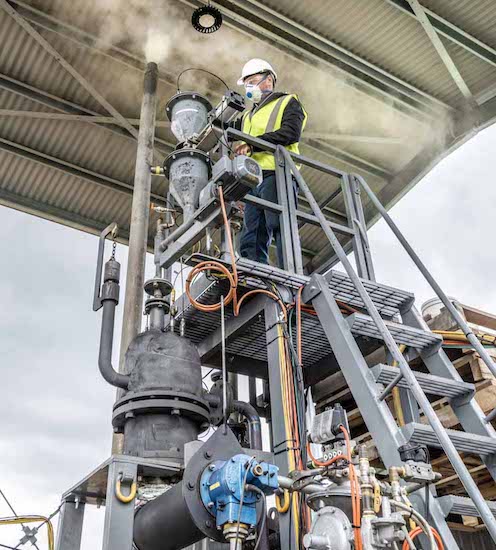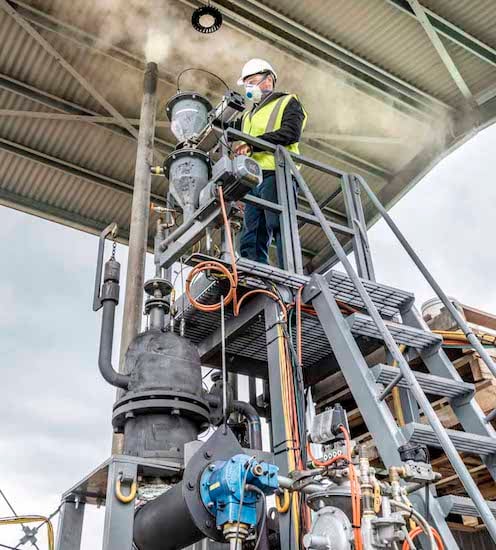Biochar project may eliminate landfill waste in water industry

With around 30% of the world’s biosolids stockpiled or sent to landfill, an innovative Victorian partnership is utilising world-first technology to transform the resource into reusable products for farmers.
South East Water is helping to deliver the Biosolids to Biochar project in partnership with RMIT University, Intelligent Water Networks and Greater Western Water.
Developed by RMIT University, the innovative technology uses a process called pyrolysis – high temperatures destroy pathogens and microplastics in biosolids to create biochar, a carbon-rich form of charcoal that can be used in agriculture to improve soil health.
The Biosolids to Biochar project is a circular approach to wastewater management, with the new technology having the potential to eliminate landfill waste across the water industry. The technology is currently being trialled at the Melton Recycled Water Plant in Melbourne.
 Steve McGhie MP, Member for Melton toured Greater Western Water’s Melton Recycled Water Plant for a first-hand demonstration of the new technology.
Steve McGhie MP, Member for Melton toured Greater Western Water’s Melton Recycled Water Plant for a first-hand demonstration of the new technology.
A boon for fostering sustainability in Victoria, Member for Melton Steve McGhie MP said the collaboration will support renewable energy production in the state, help farmers and produce great outcomes for the environment.
“This collaboration will enable the water industry to find alternative markets for biosolids, reducing waste going to landfill and allowing 100% of products to be reused or recycled,” McGhie said.
“This project is an excellent example of like-minded organisations working together with a shared commitment to sustainable solutions. By reusing and adding value to biosolids, we recover local resources, reduce landfill and create renewable energy to reduce our greenhouse gas emissions.
“By creating a safe product with a steady supply stream, we’re also providing our farmers and the wider agriculture industry a product which is completely natural and can improve soil health and fertility.
“This project is incredibly exciting for both industries and I can’t wait to see the outcome of the trial.”
South East Water Managing Director Lara Olsen said supporting innovative emerging technologies is an important part of South East Water’s commitment towards reduced emissions, but will also help other water utilities do the same.
“The disposal of biosolids is a challenge across the water industry. South East Water is continually looking for ways we can work with others to create innovative solutions to protect our environment and to help our customers and community,” she said.
“This technology is important as it can be scaled to any size, making it a possible solution for both urban and regional water utilities.”
Critical in transition to a circular economy
RMIT University Associate Professor Kalpit Shah said finding new ways to harness the full value from waste resources is critical in our transition to a circular economy, and he’s thrilled this Australian-first technology has reached full trial stage.
“At the heart of RMIT research are our strong partnerships with industry,” he said.
“We hope this collaborative trial will enable us to accelerate the translation of our innovation into new homegrown technologies that advance sustainability and make a real impact in water and agriculture.”
Greater Western Water Managing Director Maree Lang said initiatives like the Biosolids to Biochar project are integral to ensuring sustainable development into the future, as populations in the outskirts of Melbourne and Victoria’s regions continue to grow.
“With a growing customer base and one of the largest service regions in Victoria, it’s so important that we find ways to add even more value to the work that we do,” she said.
“This project is an excellent example of like-minded organisations working together with a shared commitment to sustainable solutions.”
